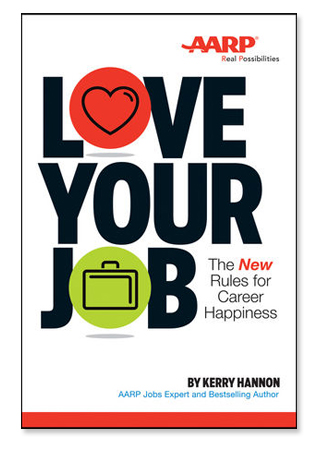I recently asked Kerry for her thoughts on how to take charge of your career to make your job more enjoyable and fulfilling in 2016.
Here is our Q&A:
Q: It’s New Year’s resolution time. Many people may be considering making an “ask” at work, such as requesting a raise or more flexibility, in 2016. What tips can you share?
KH: First, let’s consider some questions to ask yourself before the big meeting. Among them:
- Are you sold on what you’re asking for? Is the change you’re seeking going to make your job better in some way or your life richer? You can sell it to your boss only if you yourself are persuaded. So consider—why you? Why now?
- What exactly are you asking for? Do you have a well-defined proposal? You need to be able to cut to the chase quickly, and explain what it is you’re asking for.
- What are your boss’s challenges right now? Does he or she work for a difficult boss? Is your department in the midst of cutbacks? Take the time to do your research to get a feel for what your manager faces before you go for the “ask.
Now, some tips:
Click: to Read LinkedIn Column Here
Build your pitch by first thinking of it from your boss’s perspective. If you move to another department, for example, will your boss have to find someone to replace you? Think strategically and build your case by explaining clearly how your boss and your department can benefit, and do everything you can to make the transition easy for them.
Tweak your elevator speech. What are your goals? Why are you best suited for this? Can you show how the new duties will ramp up your skills and make you a more valuable employee?
Give your boss time to consider your request and to get back to you.Avoid demands and “I need to know right now” pressure sales. Your boss may have to get permission or just get comfortable with the requested changes. If you’re seeking a promotion, you might ask something like this: “I’ve been in this position for three years, what can I do to move to the next level?”
By asking for advice, you’re leaving the door open for a conversation to develop. Even if your boss says no right now, have some options up your sleeve. For example, more vacation days or some flexibility to work remotely one day a week.
Q: You mention in your book that the ability to have some autonomy and control over work schedules is something that makes people happier. What’s the best way to ask for that?
KH: The appeal of working from home, or remotely, whether full time or part time, is easy to understand. When it comes to what makes people love their jobs, this is a biggie. My research and interviews with hundreds of workers have clearly shown that more flexibility in scheduling day-to-day activities leads to greater happiness on the job. People have more loyalty and miss fewer work days.
“Improved efficiency” should be at the top of your “why you should let me have a flexible work schedule or telecommute” list. Increased productivity is one of the leading reasons why employers permit employees to work from home.
Walk into the conversation with your boss with a proposal that describes what your work schedule would be, the number of hours you would work, how unplanned overtime would be handled, how often you would check in with an office visit, and how often you would talk with your boss.
You might agree to work in the office when projects are being launched or problems arise that the company needs to solve. To seal the deal, ask for a trial period of three to six months so both you and your boss can see how the arrangement works out and fine-tune it if needed.
Q: What more can employees do to enjoy the time they spend at work?
KH: The workplace is evolving in many ways that certainly allows for happiness, but increasingly it is up to you to make your own happiness. It’s an internal shift. One thing that makes us love our jobs is a pride in what we are doing. We love the mission of our work and want to believe in the product.
Be sure you know what your company stands for, its purpose, and what makes its brand different from competitors. This is an essential ingredient to becoming a loyal and happy employee.
Flexible hours and the opportunity to telecommute can go a long way for many people. Find out if these options are available within your organization.
Does your employer offer free continuing education and professional development programs? Taking advantage of these benefits can help build happiness.
Finally, and importantly, if your employer offers financial planning and retirement seminars for employees take advantage of them. This is a tremendous perk that helps you get financially fit and attain financial security. It also builds a more positive workplace and eases financial stress.
Well said, Kerry!
Written by
Jeanne Thompson
Follow Kerry on Twitter: @KerryHannon. I’m there, too: @Jeanne_Fidelity.




You must be logged in to post a comment.